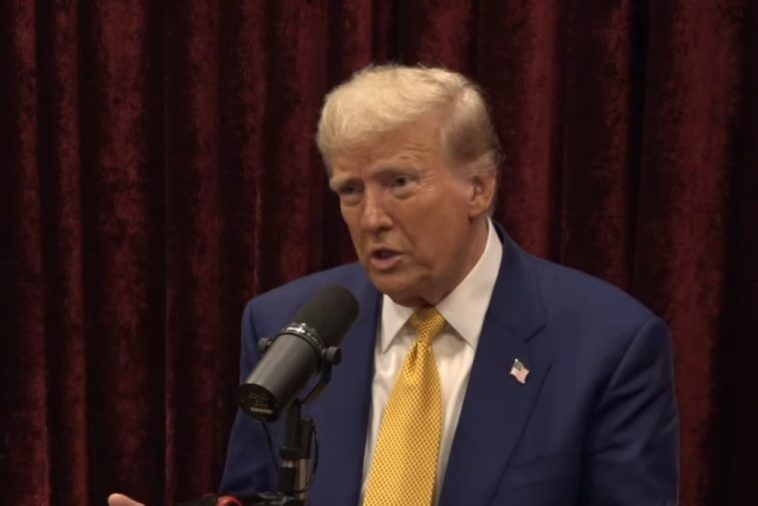Following the successful outcome of the 2024 presidential elections for Donald Trump, Dana White, the President of UFC, has been vocal in his disregard for mainstream media. In a recent UFC event, White voiced his belief that the significance of traditional media has greatly diminished. He boldly asserted that it felt like a ‘reset’ button had been pressed on the country, and proclaimed that the mainstream media, previously considered a powerful entity, now functioned in a post-mortem state. He put forth the assertion that the media and politicians are currently the most despised factions globally.
White then turned his attention to social media, instrumental in forming political landscapes, highlighting its crucial role in the 2024 election, essentially won over the internet. The UFC President’s remarks have sparked considerable discussions, drawing the attention of noteworthy individuals like Elon Musk. The CEO of the company X, formerly known as Twitter, concurred with White’s viewpoint on a social media post, expressing his agreement with the simple phrase: ‘True.’
The ‘likes’ left by Musk on White’s statements are consistent with his continuous endeavors to establish X as a formidable combatant in the realm of modern media, an effort aimed to challenge the hold of conventional news outlets such as multinational media firms. Musk even humorously proposed the idea of purchasing these networks in a bid to further disrupt the prevailing media environment. However, White and Musk are not alone in this debate about traditional media’s diminishing influence.
Joe Rogan, known host of The Joe Rogan Experience, mirrors the sentiment held by Dana White. Rogan, notorious for his frequent disparaging remarks aimed at mainstream media, citing perceived prejudice, aligns with White’s viewpoints. Having played a key role in the election of Trump by interviewing him on his widely-consumed podcast, Rogan’s political inclinations have moved from originally leaning towards Democrat ideologies to gradually aligning with conservative beliefs.
His high-impact podcast, streamed by millions, functioned as a stage for political debates, including Trump’s ideologies, exposing them to wider audiences. This shift in Rogan’s political alignment became a hot topic recently when Joy Behar, the host of ABC’s The View, ridiculed him, facetiously referring to him as a ‘dragon believer’ and throwing doubt over the credibility of his podcast.
Rogan retaliated sharply, lambasting mainstream media for dictating narratives that ultimately failed in forecasting Trump’s victory. The emerging coalition between White, Rogan, and Musk signifies an increasing threat to the supremacy of traditional media. Accompanied by X, formerly Twitter, which has emerged as a strong competitor in the new age of media consumption, this triad is pushing against the boundaries of mainstream narratives.
The growing influence of social media platforms has brought about questions regarding their potential for misuse and whether platforms such as X could possibly replace the conventional news channels, given their vulnerability to biased narratives and manipulative controls. Hence, the discourse surrounding the dwindling impact of traditional media raises significant queries.
One such question is whether conventional media is truly ‘extinct,’ or merely transitioning into a different form? Can platforms like X provide a more straightforward, uncensored source of information or will they succumb to the same pitfalls of bias and manipulation that have plagued traditional outlets in the past?
Unquestionably, the landscape of media consumption is becoming more and more complex, with lines blurring between traditional and new age platforms and their roles in information dissemination. The answer to whether old media is simply evolving or quietly vanishing may not be immediately clear.
Similarly, while platforms like X could emerge as powerful, untainted sources of information, they must remain vigilant to avoid falling into the same traps that have marred their predecessors. In this rapidly changing media landscape, information consumers and providers alike must adapt and learn how best to use and understand these shifting platforms.
The debate over traditional media’s declining influence is an ongoing discourse that highlights the shifting landscape of communication in the modern world. Opinions of notable figures such as White, Rogan, and Musk continue to play a significant role in these discussions, which draw attention both toward and away from the recognized media actors.
What comes of this discourse, whether a revolutionized media landscape or a return to old narratives, remains to be seen. Until then, it serves as a reminder of the persistent and simultaneous processes of embracing new technologies and traditional practices, and the constant tension between these two forces in shaping our world.
While traditional media’s seeming dissolution and the rise of social media like X are hot topics, media, new or old, serves as a vital part of our society. It is the mirror in which we see and understand our world, whether it is through a television set in our living rooms or the smartphone screen on our palms. In the dynamic flux of this evolution, we must not lose sight of the primary objective of media: to inform, educate, and provoke thought, irrespective of the platform.


